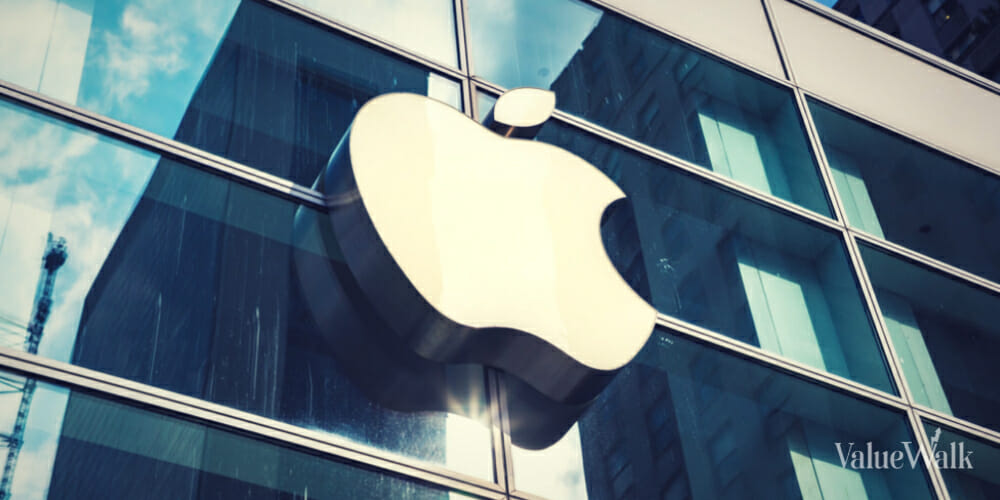- Apple beats Wall St expectations, but landscape remains tough
- US market fell in latest trading session on regional banking pressure, but futures look brighter
- British Airways owner posts small quarterly profit for first time since pandemic
- Brent crude at $73 a barrel as higher recessionary risk and supply increases feed into 9% weekly drop in the price
Apple Beats Expectations
Nerves were high going into Apple Inc (NASDAQ:AAPL)’s results, following serious supply chain problems and a weakening consumer backdrop. Overall revenue in the second quarter was lower than the same time a year ago, but better than expected.
The beat reflected a quarterly record for iPhone sales, but other hardware declined. Apple is one of the very few big tech companies that hasn’t announced sweeping job cuts, which is partly linked to the less bloated business model.
The group’s impenetrable brand is also holding it in good stead, but the overarching theme of these numbers is that consumers are very much starting to pull back on buying bigger-ticket items.
Apple can take the rough with the smooth, but the chances of share price sensitivity are heightened, because it’s becoming increasingly difficult to read the blueprint of demand.
Pressure On Regional Banks
Apple’s beat has fed into some optimism on the US markets, with futures edging slightly higher. The overall mood music is a little downcast though, as some renewed regional banking pressure and recessionary fears came to the forefront after the Federal Reserve’s latest interest rate hike.
Investors may well be overlooking the fact that the recent concerns around some banks are related to liabilities rather than asset quality, today’s situation is a far easier problem for the likes of the Fed to solve.
IAG Posts Small Quarterly Profit
British Airways owner, IAG (LON:IAG), has landed a first quarter underlying operating profit for the first time since 2019. While all pandemic headwinds aren’t fully in the rear-view mirror, namely that business travel, which IAG is highly exposed to, remains sluggish, the group’s in much better shape overall.
Profit expectations for the full year have been upgraded, as demand for summer bookings holds firm. About 80% of expected summer-quarter revenue has been booked, as consumers continue to prioritize time away despite the considerable pressures on income.
On average, planes that took off were 81.5% full – which is a meaningful improvement and vastly improves the per-seat unit cost for the group. Being more long-haul focussed, it has taken a very long time for normality to come into view for IAG, but all things considered, back-to-normal is now officially on the menu.
The main fly in the ointment is continued workforce disputes at major hubs, including Heathrow, which could dent demand and brand appeal if queues and disruption are worse than expected going into the important summer season.
Brent Crude Sees A 9% Drop In Price
Brent Crude has lost around 9% this week, with Federal Reserve and ECB interest rate hikes sapping momentum out of predicted demand. Added to that pressure, there was an unexpected contraction in Chinese manufacturing activity, because of poorer global demand.
There has also been an increase on the supply side, with Russian exports rising by 4m barrels a day last week. Russia has previously pledged to cut production, but is likely seeking this extra income as a way to prop up its wavering economy.
Article by Sophie Lund-Yates, lead equity analyst at Hargreaves Lansdown












